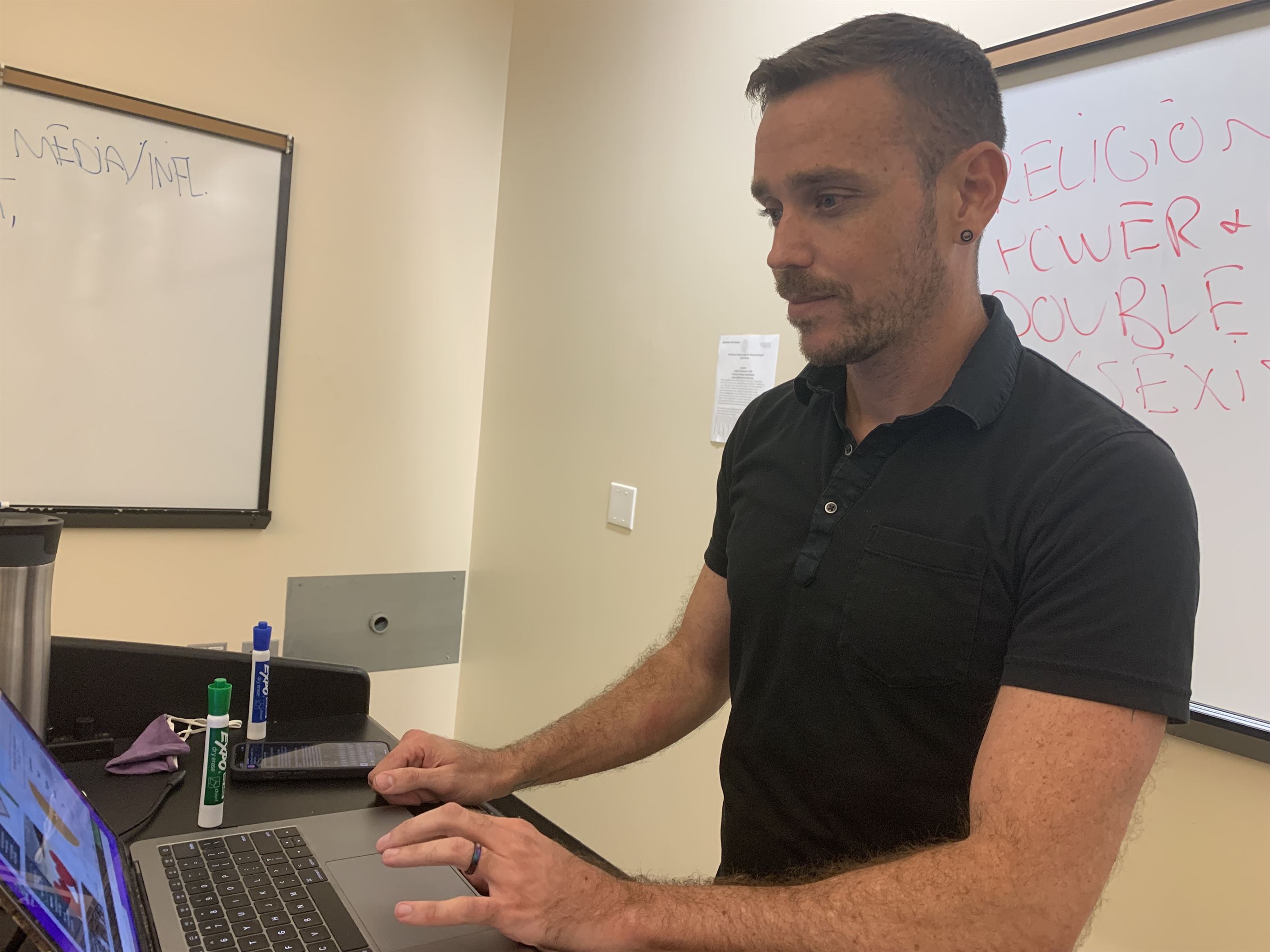After the coronavirus (COVID-19) pandemic, many people were already on edge about germs and diseases. Habits formed during lockdown such as incessant hand-washing and wearing masks everywhere still stick with some people to this day. So when the monkeypox virus began to make headlines, many Montclair State University students became concerned.
The monkeypox virus has been circulating in the news over the past few months. While there hasn’t been a pandemic-level concern for the virus, monkeypox was classified as a public health emergency by the World Health Organization over the summer.
The virus was discovered in the late 1950s within animals and then humans in the 1970s. It originated from portions of west and central Africa before becoming detected in the United States in 2003.
The monkeypox virus is most commonly spread by making physical contact with someone else who may be infected through hugs, intercourse or the spread of germs from unclean clothing, bedding or towels. It may also be spread through the touch of infected animals.
The most common symptoms include rashes on the body along with flu-like symptoms, like a fever or excessive tiredness.
Since Sept. 2022, according to the Centers for Disease Control and Prevention’s (CDC) website on the monkeypox virus, 661 cases have been reported in New Jersey, ranking it the eighth highest state in monkeypox cases.
While there have been no reported cases on campus, members of the Montclair State community shared their insight on the situation. Joshua Klein, an adjunct professor in the public health department, said he believes it is something to be concerned about, but it should not be a cause for greater worry.
“I think first and foremost, it’s important not to freak out [about monkeypox],” Klein said. “I know it’s easy to freak out coming off of [COVID-19], but one thing we know about it is that this is not a generally life-threatening condition.”

Joshua Klein, an adjunct public health professor, says monkeypox should not be a reason to panic. Aidan Ivers | The Montclarion
Klein went on to say how communication is of the utmost importance when it relates to the virus and information regarding the vaccine.
“It sucks to have it, and that’s why we want to communicate with our friends and partners if we’re experiencing any outbreaks of things that look like monkeypox such as the rashes that appear as a cause of it,” Klein said. “The vaccine efforts are well underway. It was off to a slow start, but we should trust the system.”
Social media and the lack of reporting on the virus have resulted in some feeling uninformed about monkeypox. Madison Westenhiser, a sophomore film and television major, said the virus is not being discussed enough.
“I honestly have not heard that much about it,” Westenhiser said. “I feel like it’s not being talked about in today’s age. From what I’ve seen, I just know it’s terrible to have.”
Westenhiser also pointed out some misinformation she has come across online and the impact it may have on the general population.
“People were making jokes and false claims online that [monkeypox] only affects gay men and if it were only straight people getting the disease, then maybe this would have had a vaccine sooner,” Westenhiser said. “I honestly feel like we should be more educated on it, specifically with how it’s transferred from one to another.”

Madison Westenhiser, a sophomore film and television major, shares how identifying misinformation and getting educated on the virus is crucial to combat it.
Aidan Ivers | The Montclarion
Emil Sanchez, a sophomore psychology major, emphasized the idea of people protecting themselves.
“In general, people just need to protect themselves from it,” Sanchez said. “Just being aware of their surroundings and what’s close to them.”

Emil Sanchez, a sophomore psychology major, believes people should be more aware of their surroundings regarding the virus.
Aidan Ivers | The Montclarion
It is important to follow the correct protocols and listen to professionals who understand the virus and its capabilities.
Tanis Rivera Lepore, a sophomore undecided, shared a tip she heard regarding monkeypox and how to prevent it from spreading to others.
“In order to keep yourself safe since [monkeypox] is not a respiratory virus, it’s more like if you rub against somebody who has an open wound, you could get infected, I’ve heard to wear long pants and long sleeves around those who may have it since there is less of a chance that you’ll get it,” Lepore said.

Tanis Rivera Lepore, a sophomore undecided, shares how she heard wearing longer clothing could help prevent the spread of the virus.
Aidan Ivers | The Montclarion
For more information on monkeypox, visit the CDC website.



